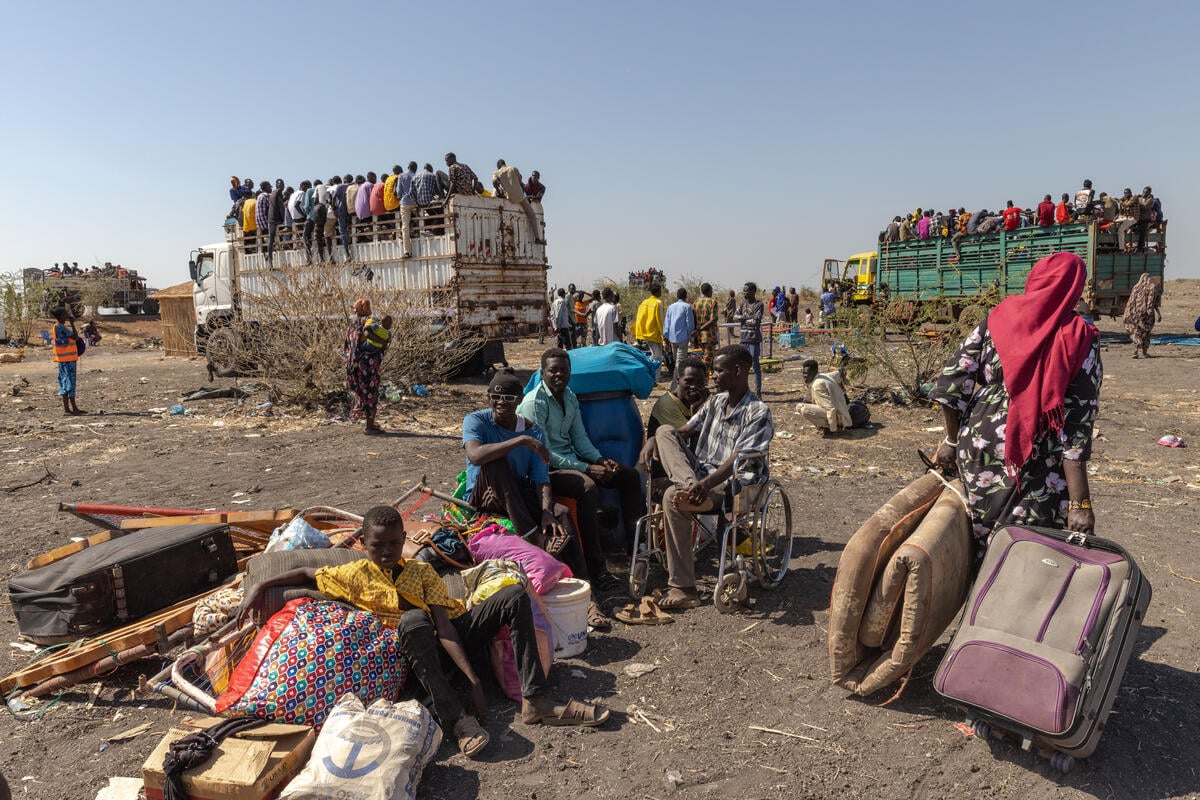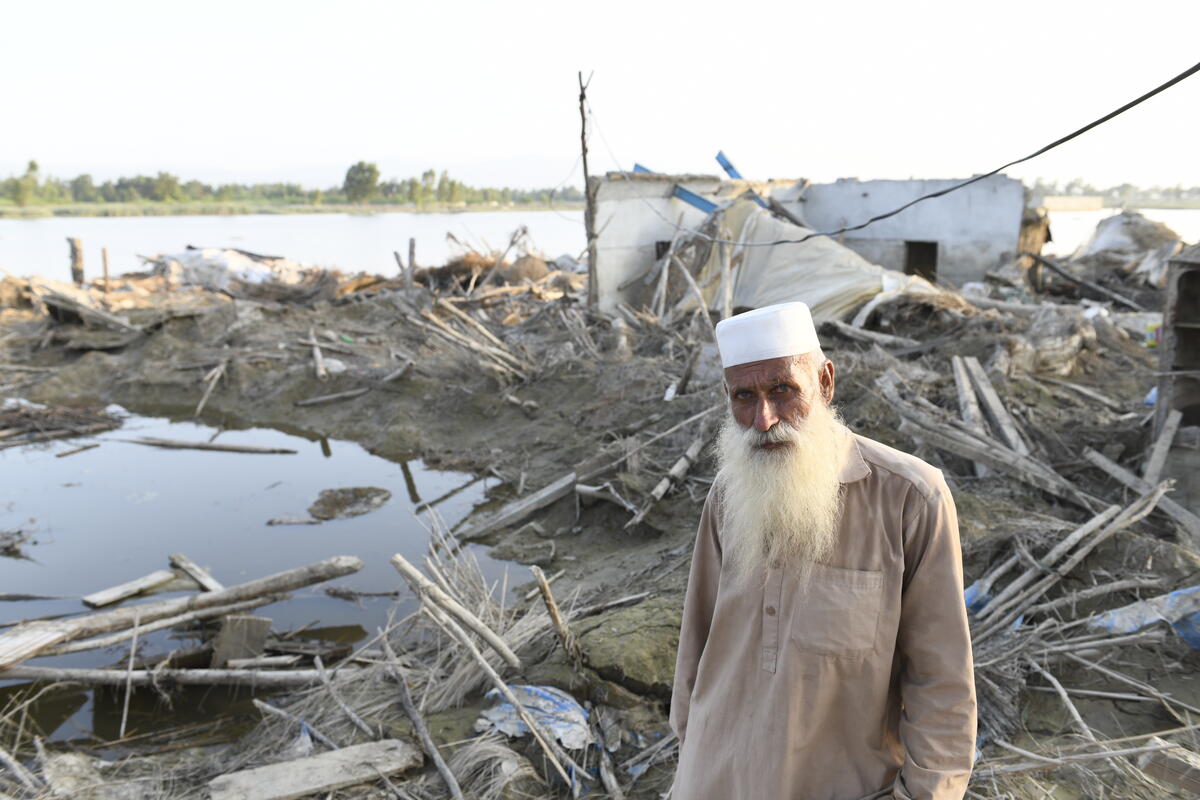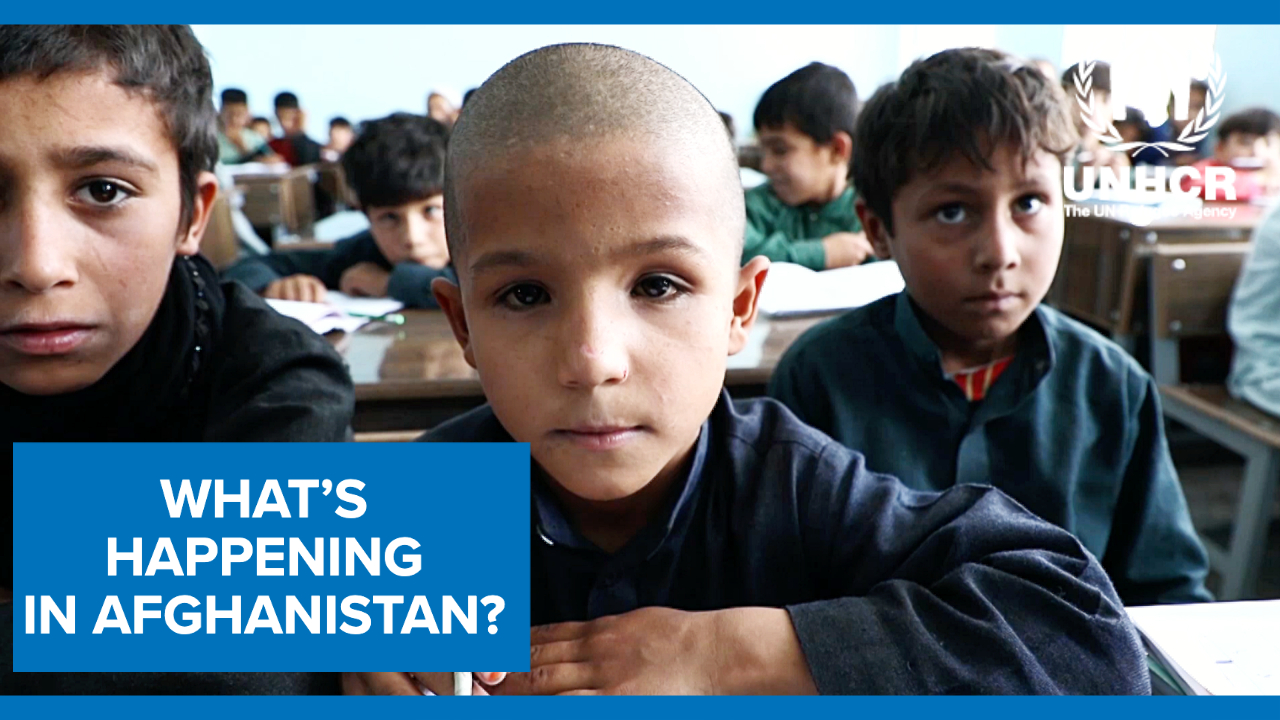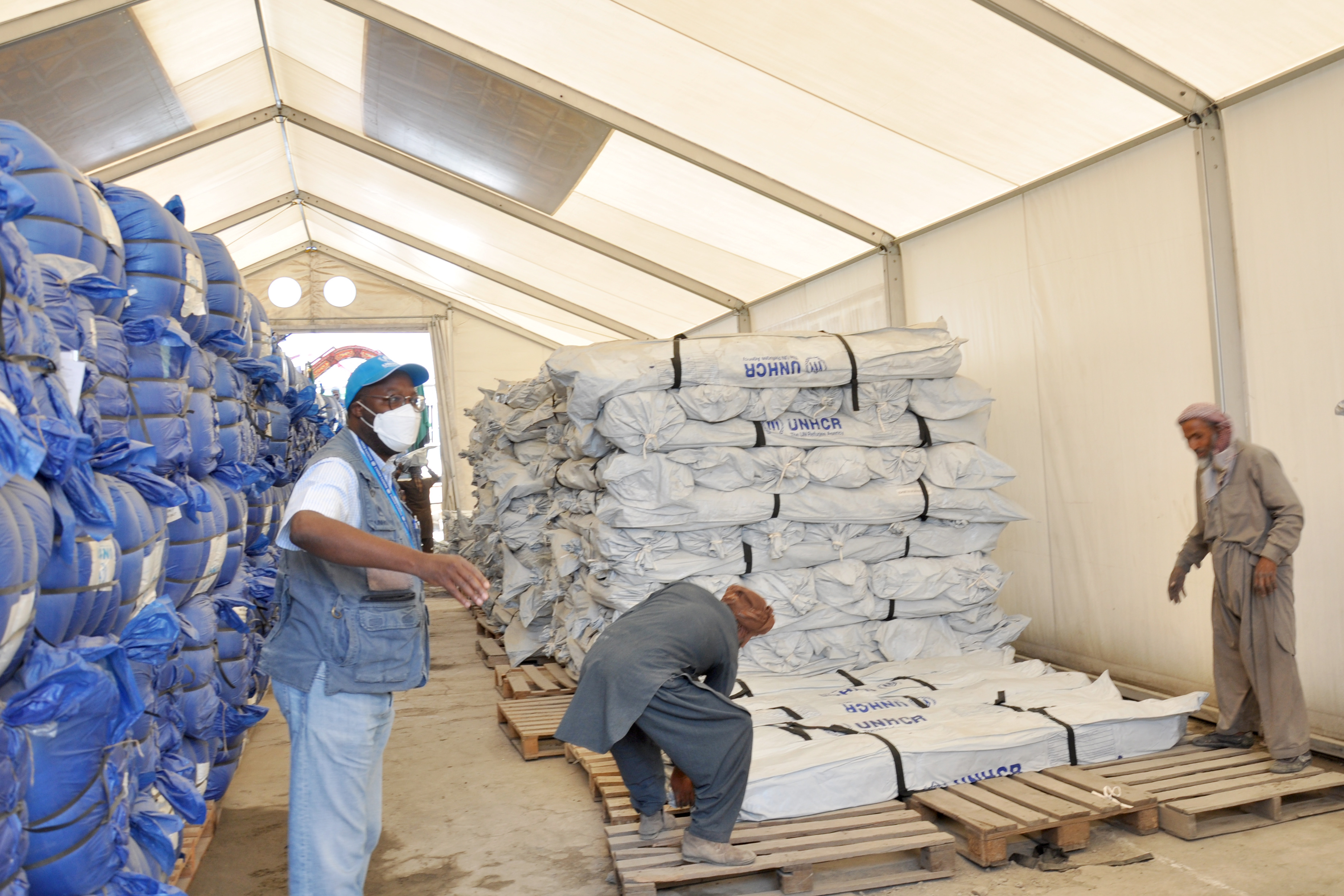Displaced Afghans start moving from desolate border sites
Displaced Afghans start moving from desolate border sites

SPIN BOLDAK, Afghanistan, October 23 (UNHCR) - Desperate Afghans stuck in makeshift border camps have begun leaving the remote sites for the safety of a new camp near Kandahar established by UNHCR to house displaced people who have run out of options and patience for life in this windswept border town.
Since the UN refugee agency began offering relocation assistance on October 10, more than 2,600 displaced people living in five remote sites surrounding Spin Boldak - a smuggler's haven on the border with Chaman, Pakistan - have opted to leave for Zhare Dasht, a temporary relocation camp recently built by UNHCR.
UNHCR and other agencies established basic services, dug wells and provided food aid and health care at Zhare Dasht, located west of Kandahar, starting from mid-August. Zhare Dasht was created as conditions worsened at Spin Boldak's makeshift camps and in the nearby "waiting area" just inside the Afghan frontier at Chaman. Both the Afghan government and Pakistan's authorities asked UNHCR and its partners to meet the needs of the tens of thousands of Afghans who were stuck in desolate conditions when Pakistan closed its border and the mainly Muslim non-governmental agencies working in Spin Boldak withdrew.
The temporary Zhare Dasht camp is meant to enable internally displaced persons (IDPs) to receive aid in a UN-assisted location far from the lawless border zone until the situation in their home regions improve and they can safely return. It currently shelters more than 9,600 Afghans, far below its maximum capacity of 60,000 persons.
The UN refugee agency has offered displaced Afghans camped around Spin Boldak returnee assistance and transport to return home, along with food aid from the UN's World Food Programme. Over recent months, many families have opted to accept the aid and go home, with more than 1,300 families leaving the squalid camps aboard UNHCR-chartered buses.
For those people who do not yet feel safe enough to return home, or who cannot return to their traditional livelihood due to the drought, UNHCR's temporary site at Zhare Dasht is a world away from the five desolate encampments that bracket Spin Boldak and Chaman's adjacent waiting area.
"Living conditions on this side of the border are harsher than you can imagine," said UNHCR Spin Boldak's Farid Ahmed Karimi. "The IDPs don't receive regular food assistance, they survive off the daily wages they earn from working or begging at the Wesh market (a bustling border market that runs along the Pakistan border)."
The lack of assistance in the makeshift camps has encouraged some Afghans to leave the border zone. WFP distributed aid to Spin Boldak's IDPs through August 2002, but since those deliveries ended, there has been nothing.
"Life in this camp is tougher than I ever imagined," said a gloomy-looking Mussa Jan, a displaced Afghan originally from Zabul province. "Food assistance isn't regular and we survive by working as labourers in the Wesh market. The struggle to survive is so hard that our children sometimes have to beg."
He added, "I'm happy that the relocation process has finally started as we think that there's a harsh winter ahead of us."
Abdul Hannan, another displaced Afghan living in Spin Boldak's dusty camps, said he had registered to relocate to Zhare Dasht along with 53 other families. "We were waiting for this opportunity and I personally know many people who will be moving in the coming days as our condition in the Spin Boldak IDP camp is not very good," he said. "I know 250 more families that are ready to relocate as soon as possible."
Other displaced Afghans living in Spin Boldak's tattered camps would rather see for themselves before moving onwards.
"I also want to visit Zhare Dasht camp and see for myself, only then I will take the 122 families that I head," said Abdul Ahad, originally from Ghazni province, as he sat in a tent filled with Afghans all clamouring to leave Spin Boldak.
Despite its efforts to provide a choice to Afghans stuck at Chaman and those displaced persons living in Spin Boldak's desolate camps, UNHCR expects some people to remain. Tor-Eilif Emaus, UNHCR's Team Leader at Chaman, said that only some 120 families now at the "waiting area" site await relocation, with the transfers expected to cease at the end of October, but the site was far from empty.









